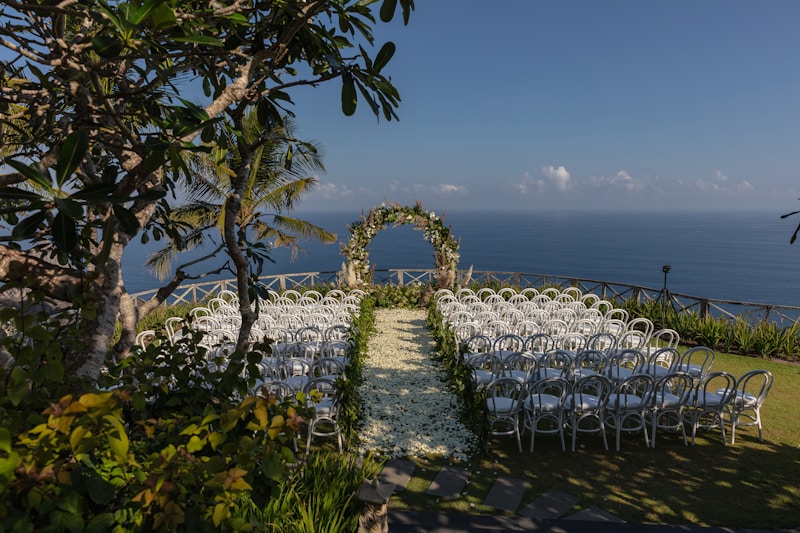Destination Weddings vs. Traditional Weddings: Which One is Right for You?
Destination Weddings vs. Traditional Weddings: Which One is Right for You?
Weddings are a momentous occasion that marks the beginning of a new chapter in life, and choosing the right type of wedding can significantly impact the experience. When determining between destination weddings and traditional weddings, couples face a variety of considerations that encompass location, cost, guest list, and style. This article aims to provide insights on both types of weddings to help you make an informed decision.
Understanding Destination Weddings
A destination wedding occurs when a couple chooses to tie the knot in a location away from their hometown, typically in exotic locales like beaches, mountains, or historic cities. These weddings can range from intimate ceremonies with close family to grand celebrations with numerous guests. Some hallmark features of destination weddings include:
- Scenic Backdrops: Destination weddings often take place in picturesque locations, offering stunning photo opportunities.
- Vacation Vibe: Guests often treat destination weddings as vacations, which can create a relaxed atmosphere.
- Inclusive Celebrations: Many destination weddings include multiple events, such as pre-wedding parties and post-wedding brunches, allowing for extended time with loved ones.
Popular Destination Wedding Locations
| Location | Notable Features |
| Hawaii | Stunning beaches, tropical landscapes |
| Italy | Romantic cities, rich history |
| Mexico | Vibrant culture, beachfront resorts |

Exploring Traditional Weddings
A traditional wedding typically takes place in the couple’s hometown or at a venue close to where they live. These weddings often follow cultural or familial customs, making them a reflection of the couple’s heritage and beliefs. Here are some defining characteristics of traditional weddings:
- Familiarity: Traditional weddings occur in familiar settings, making it easier for a larger number of guests to attend.
- Customary Practices: Many traditional weddings involve specific rituals or ceremonies, which can add sentimental value to the event.
- Control Over Details: Couples may have more control over planning logistics, choosing vendors, and managing timelines in their hometown.
Common Traditional Wedding Venues
| Venue Type | Features |
| Church | Elegant settings, religious traditions |
| Banquet Hall | Spacious, often all-inclusive packages |
| Outdoor Gardens | Natural beauty, picturesque settings |
Comparing Costs
One of the most critical factors in wedding planning is budgeting. Generally, destination weddings can often appear less expensive at first glance due to the allure of beach resorts and all-inclusive packages. However, there are hidden costs that can add up quickly, such as travel expenses for guests and accommodations.
In contrast, traditional weddings can range widely in cost depending on location, guest count, and chosen services. Here are some cost considerations for both wedding types:
Cost Comparison Table
| Cost Factor | Destination Weddings | Traditional Weddings |
| Average Venue Costs | Varies, often included in package deals | $5,000 - $20,000 |
| Guest Travel Expenses | High, must be considered | Low to moderate |
| Wedding Planner Fees | Often included in package | Typically $1,500 - $3,000 |
Guest Experience
The experience for guests varies significantly between destination and traditional weddings. Many couples find that guests at destination weddings enjoy the entire weekend experience, taking part in various activities together. However, travel logistics can be more complicated, especially for larger guest lists.
At traditional weddings, guests often experience less of a vacation mood and may feel more inclined to briefly attend the ceremony and reception, but they can appreciate the familiarity of the venue and surrounding area.
Choosing What’s Right for You
Ultimately, the choice between a destination wedding and a traditional wedding comes down to personal preferences and values. Couples should consider the following questions:
- What is your ideal wedding vision? A tropical beach at sunset, or a grand hall adorned with flowers?
- How important is the guest list? Do you want a small intimate gathering, or a large affair?
- What is your budget? Can you cover potential travel costs for guests?
Both types of weddings can be incredibly beautiful and memorable, but they offer distinctly different experiences and challenges. Regardless of the style chosen, the importance of celebrating love remains the same.
Conclusion and Recommendations
In conclusion, both destination weddings and traditional weddings have their unique pros and cons. It can be helpful to sit down together as a couple to discuss your dreams, visions, and practicalities associated with either choice. For couples who value adventure and open spaces, a destination wedding may be the best fit. Alternatively, for those who cherish family traditions or aim to stay budget-conscious, a traditional wedding might be the way to go.
Whatever path you choose, ensure it resonates with both of your personalities and allows for the celebration of your love story. Good luck with your wedding plans, and remember, there are no right or wrong choices—only what feels right for you!
Note: Always consider potential restrictions or guidelines related to travel and gatherings, especially in the post-pandemic world, and plan accordingly for a smooth celebration.
